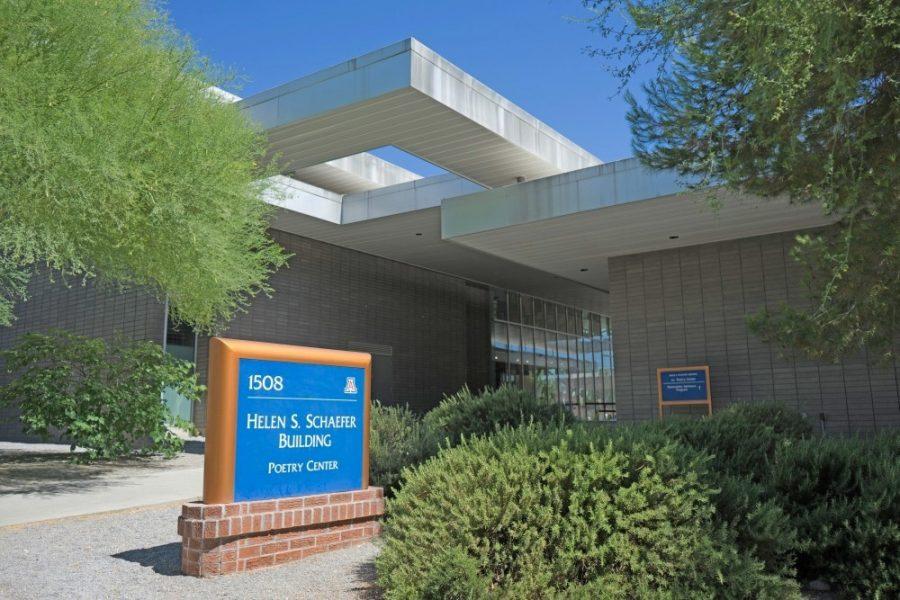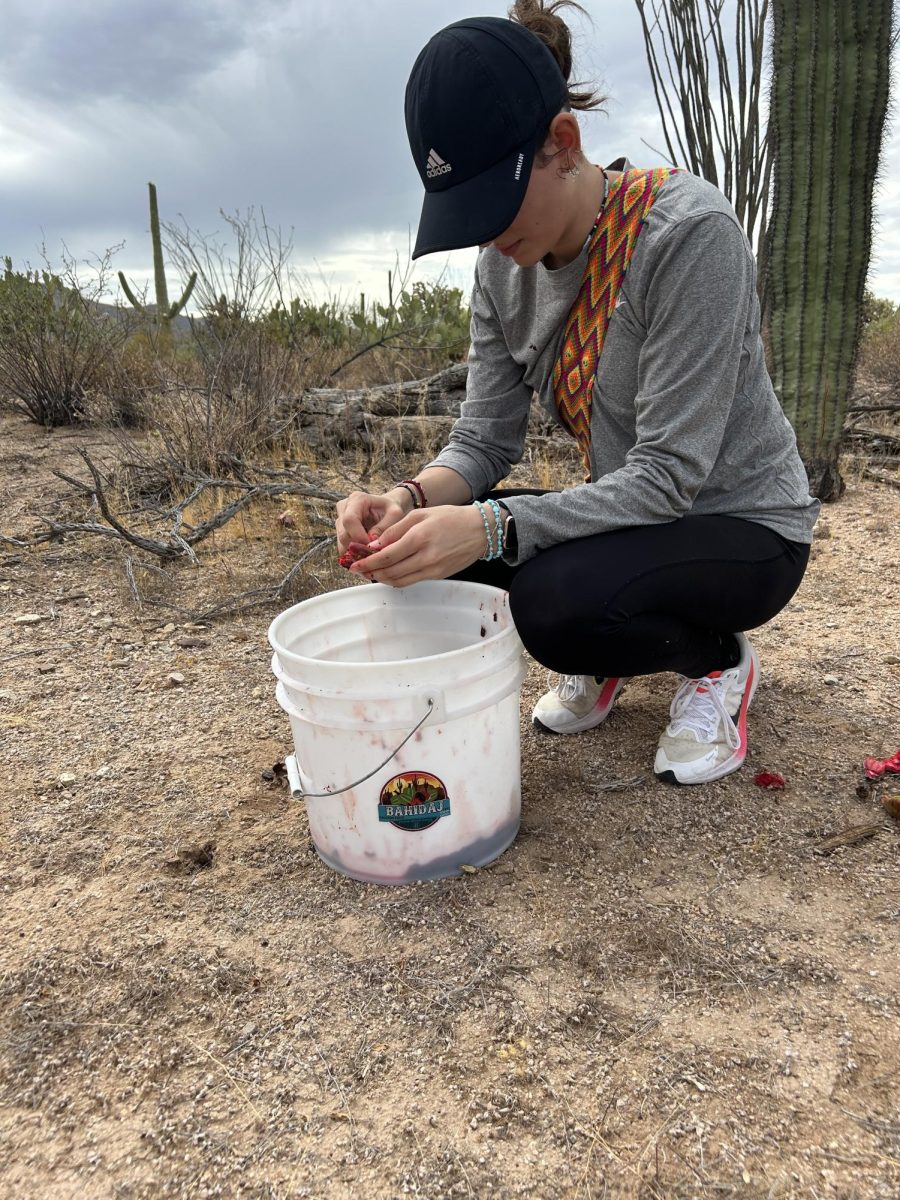COVID-19 vaccine recipients at the University of Arizona’s POD vaccination site now have the chance to participate in a new global poetry project created by the UA’s Poetry Center.
The Global Vaccine Poem project is a collaboration between the UA Poetry Center and Kent State University’s Wick Poetry Center. The project hopes to encourage individuals to “share their voices and promote COVID-19 vaccination through the imaginative language of poetry,” according to a UA press release.
“The project gives them a chance to use language to try to acknowledge that something really significant has been part of our life for the past 14 months and living through it is no small thing,” said Tyler Meier, the executive director of the UA Poetry Center. “A lot of us have sacrificed so much and [by] using poetry to help manage some of that, think about it, talk about it, give it space to be shared with other people. I think it creates a kind of collective possibility where we recognize that we have experienced something together and that it’s a way for us to understand it.”
As recipients sit in a 15-minute observation period after receiving the vaccine, they will receive a card that can be filled out digitally or by hand. Those who participate can choose from four writing prompts derived from four model poems composed by the Young People’s Poet Laureate, Naomi Shihab Nye, according to the press release.
Participants who would like more time to complete a poem are welcome to submit a contribution anytime on the Global Vaccine Poem’s website, where it will be included in the project’s interactive response gallery, according to Meier.
“[The website] includes responses now from every state and from 56 different countries. We have 1,300 different responses so far,” Meier said.
Throughout the entirety of the Global Vaccine Poem project, Meier said he hopes to receive 1 million responses.
RELATED: Dealing with a pandemic: Study abroad plans for the summer and fall
“We have a desire to harness the imaginative language of poetry in the human imagination to assist our science in addressing a public health crisis. And, you know, the simple and very accessible prompts on the website invite people of all backgrounds to participate in the making of poetry and the nourishment of poetry,” said David Hassler, the director of the Wick Poetry Center at Kent State University.
While the project aims to support “large-scale vaccination efforts and personal, individual responses to the historic challenges brought on by COVID-19,” according to the project’s press release, the project is also tackling another significant issue at hand: misinformation.
“We’ve been very conscious and careful about that [misinformation],” Meier said. “But we have really tried to also allow people to say what they need to say, and so, there are a lot of responses that include hesitation and people who say, ‘dear vaccine, I don’t trust you.’ And that response is really valid and a lot of people feel that, I think. So we want to make space for those kinds of messages as well, without supporting messages that contain information that’s not true.”
To combat misinformation and hateful messages, Meier and Hassler now review the responses to ensure that the project remains a supportive gallery of “thoughtful reflections,” according to Hassler.
“After the project circulated and got more notice, we did get some people that were intent on posting racial slurs and religiously, offensive, intolerant language. So what we did is create a filter, a review process, when somebody submits, it comes to both Tyler [Meier] and I, and we approve it periodically throughout the day of the week,” Hassler said.
As the UA and Kent State University continue to work closely in this collaborative effort, both Meier and Hassler are working to find sponsors and potential foundations that could help support and spread the project to as many places as it can go, eventually including primary education institutions, according to Meier.
Here at the UA, the Global Vaccine Poem project has the full support of the College of Humanities, where the UA Poetry Center is housed.
“The University of Arizona has tremendous scientists and health professionals who have been on the front lines in studying the virus, protecting our communities and providing care,” Alain-Philippe Durand, the dean of the College of Humanities, said in an email. “But the University’s scholars in the humanities have also been crucial in confronting these historical challenges. As we seek answers and solutions, we turn to the humanities because we know the value in analyzing different perspectives and searching for a common truth.”
Meier referred to the project as “a kind of positive contagion, as opposed to the one that we’re trying to defeat,” as more individuals become vaccinated against COVID-19 and share their experiences on a local, national and international platform.
“This is a poem that we can only all write together,” Meier said. “And so, we need every voice and every voice is welcome in this project. And this project is really designed to remind us that our experiences, each of our experiences, matters.”
Follow Elvia Verdugo on Twitter















